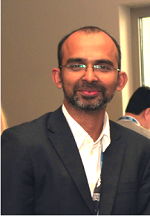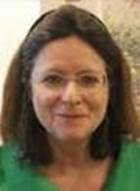
Giuseppe Maio
This post was written by Giuseppe Maio and Jedrzej Czarnota. Giuseppe is a Research Assistant working on innovation at Trilateral Research. You can contact him at giuseppe.maio@trilateralresearch.com . Giuseppe’s twitter handle is @pepmaio.
Jedrzej is a Research Analyst at Trilateral Research. He specialises in innovation management and technology development. You can contact Jedrzej at Jedrzej.czarnota@trilateralresearch.com, and his Twitter is @jedczar.
The value of open data business is increasing at a very fast pace. The open data market is projected to be worth over 75 billion in 2020. Yet, accessing this expanding market is not easy. Open data sources are difficult to find, not interoperable and hardly reusable, as argued by a recent Open Knowledge Foundation’s report.

Jedrzej Czarnota
ENERGIC-OD, a European Commission project, aims precisely to facilitate access to the open data market in the Geographic Information System (GIS) sector. The project built a pan-European Virtual Hub (pEVH) simplifying the access to and the use of GIS open data in Europe. Readers can view and utilise the pEVH here. pEVH brokers together an infinite number of geo-spatial open data sources, harmonising them, rendering them accessible through a single API and ready to be reused for various purposes. pEVH-brokered data is available under freemium licence: data is free to use and users can pay for some extra features of the pEVH. The freemium model guarantees the promotion of knowledge exchange, the extraction of value from such an exchange and from the services provided by the actors involved.

ENERGIC-OD functions as a data facilitator by improving the quality of the open data available in the GIS sector: the pEVH was designed to ensure that data is aligned with FAIR principles. These principles advocate that open data should be easy to Find, Accessible, Interoperable and freely Reusable. pEVH-brokered data is FAIR as the single website where data is stored allows GIS OD sources to be much more findable than before; the single API adopted by ENERGIC-OD makes data usable and interoperable; finally, the freemium model guarantees the re-usability of the data.
To demonstrate the viability of the pEVH, ENERGIC-OD consortium developed 10 applications based on VH-brokered data. These applications range from an app promoting communication between citizens and land consolidation authorities, to a coastline monitoring system that allows people to participate in the scientific observation of coastlines.
ENERGIC-OD is committed to enhance innovativeness among SMEs and incentivise local economic development across Europe. Such objectives appear achievable for three reasons.
Firstly, the FAIR principles characterising pEVH-brokered data facilitated SMEs’ ability to utilise GIS data sources, as ENERGIC-OD lowers entry barriers, preventing the usage of such data.
Secondly, the main features of GIS render this branch of IT extremely suitable for business (Azaz 2011). These features are: 1) spatial imaging, namely GIS’s ability to convey information with a spatial dimension; 2) database management: GIS’s capability of storing, manipulating and providing data; 3) decision modelling, or GIS’s potential to provide intelligence supporting decision making; 4) designing and planning, namely GIS’s potential as a design tool (Azaz 2011). Digital mapping, marketing, transportation and logistics, design and engineering, etc. are some of the sectors which have successfully utilised GIS for business. GIS’s potential can be further exploited coupling GIS systems with modelling tools, the so called “intelligent GIS” (Birkin et al 1995). The retail sector has already utilised intelligent GIS integrating shops’ data and spatial pattern data over time to design spatial interaction models and forecast maintenance costs as well as revenue streams (Altaweel 2016). An example of ENERGIC-OD intelligent GIS app is Natural hazard assessment for Agriculture application. Using satellite imagery, this app delivers predictions of the yield reduction in specific crops based on statistical models, considering factors such as draught, humidity, frost, etc.
Thirdly, small and medium enterprises are the greatest beneficiaries of the open data movement, as they are guaranteed free access to data they would not normally have access to and they are more likely to take advantage of open data and become drivers of innovation (Verhulst and Caplan 2015). SMEs constitute the backbone of the European economy and ENERGIC-OD thus functions as a facilitator for these businesses, enabling them, through the put in practice of FAIR principles, to tap more easily into the GIS open data market.
 An initial market research conducted by Trilateral Research, a technology consultancy member of the ENERGIC- OD consortium, confirms SMEs’ high interest in the pEVH. These enterprises will, in the next years, drive innovation and economic growth across Europe. ENERGIC-OD thus represents an example of international cooperation to promote FAIR GIS open data and the growth and development of European SMEs.
An initial market research conducted by Trilateral Research, a technology consultancy member of the ENERGIC- OD consortium, confirms SMEs’ high interest in the pEVH. These enterprises will, in the next years, drive innovation and economic growth across Europe. ENERGIC-OD thus represents an example of international cooperation to promote FAIR GIS open data and the growth and development of European SMEs.
References
Altaweel, M. (2016). GIS and Small Business Planning ~ GIS Lounge. [online] GIS Lounge. Available at: https://www.gislounge.com/gis-small-business-planning/ [Accessed 11 Sep. 2017].
Azaz, L. (2011). The use of Geographic Information System (GIS) in Business. International Conference on Humanities, Geography and Economics, pp.299-303.
Birkin, M., Clarke, G. and Clarke, M. (1995). GIS for Business and Service Planning. [online] Available at: http://www.geos.ed.ac.uk/~gisteac/gis_book_abridged/files/ch51.pdf [Accessed 11 Sep. 2017].
Verhulst, S. and Caplan, R. (2015). Open Data.A Twenty-First-Century Asset for Small and Medium-Sized Enterprises. [online] Available at: http://www.thegovlab.org/static/files/publications/OpenData-and-SME-Final-Aug2015.pdf [Accessed 11 Sep. 2017].
 I take this opportunity to introduce CEPT University, Ahmedabad which is a leading institution offering Under-Graduate, Post-Graduate and Doctoral programme in the areas of natural and built environment related disciplines in Architecture, Planning, Technology, Design, and Management. The University engages in academic, research, consultancy and outreach activities. It organizes national and international events periodically for the knowledge exchange, dissemination as well as networking for the young students.
I take this opportunity to introduce CEPT University, Ahmedabad which is a leading institution offering Under-Graduate, Post-Graduate and Doctoral programme in the areas of natural and built environment related disciplines in Architecture, Planning, Technology, Design, and Management. The University engages in academic, research, consultancy and outreach activities. It organizes national and international events periodically for the knowledge exchange, dissemination as well as networking for the young students. Experts from academia and industry will join hands and discuss about the emerging trends in geospatial those goals industry and the role of academia in reaching. Vision on GIS industries and trends, deciding roadmaps in GIS and have better visibility in working together for the benefit of both academia and industry. A special session is organized for the industry to discuss with the students and the academia on their requirements and the respective changes needed in the academic system.
Experts from academia and industry will join hands and discuss about the emerging trends in geospatial those goals industry and the role of academia in reaching. Vision on GIS industries and trends, deciding roadmaps in GIS and have better visibility in working together for the benefit of both academia and industry. A special session is organized for the industry to discuss with the students and the academia on their requirements and the respective changes needed in the academic system.

















